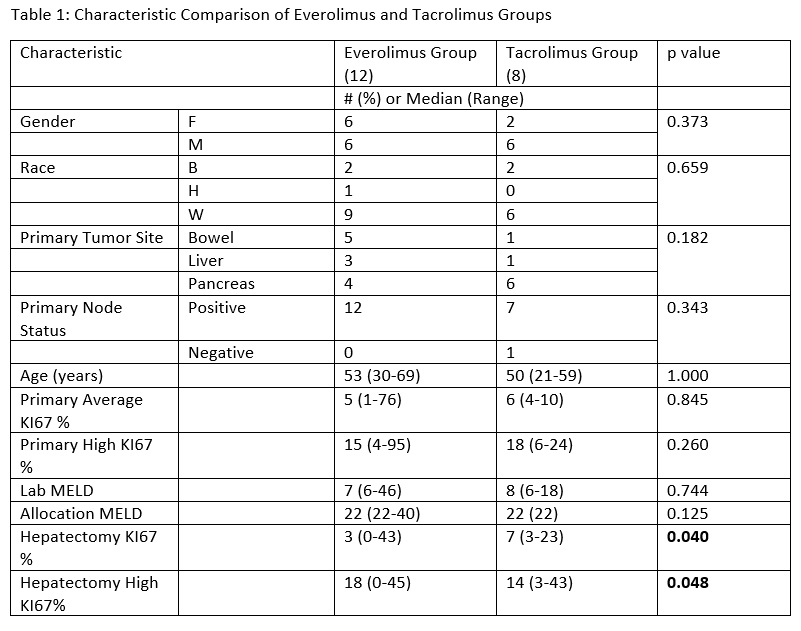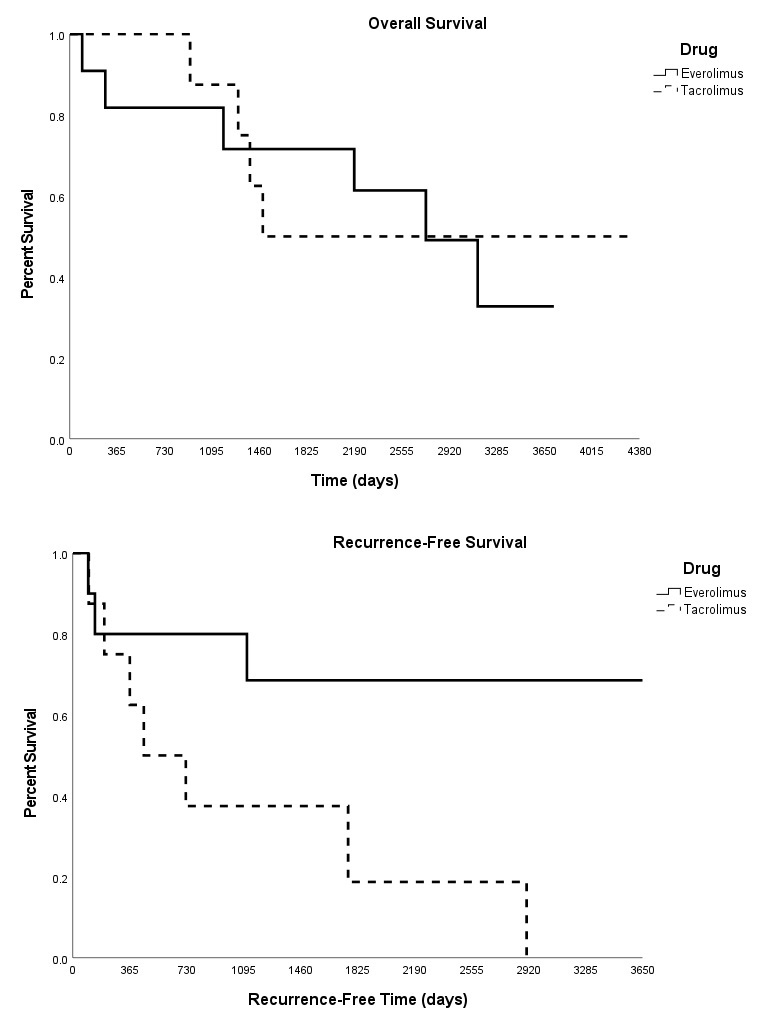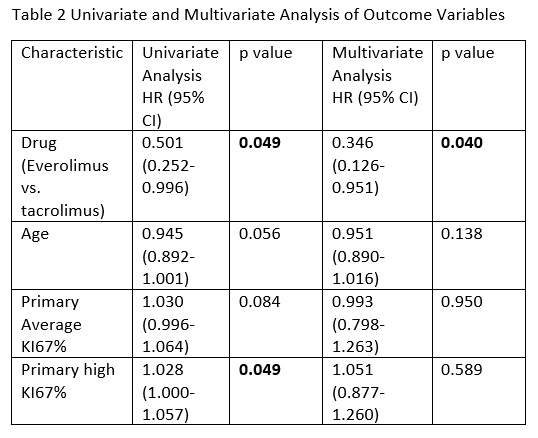Everolimus in Liver Transplantation for Diffuse, Unresectable Neuroendocrine Tumor
1Transplantation, University of Tennessee/Methodist University Hospital, Memphis, TN, 2Transplantation, University of Tennessee, Memphis, TN
Meeting: 2022 American Transplant Congress
Abstract number: 1098
Keywords: Immunosuppression, Malignancy, Tumor recurrence
Topic: Clinical Science » Liver » 56 - Liver: Hepatocellular Carcinoma and Other Malignancies
Session Information
Session Name: Liver: Hepatocellular Carcinoma and Other Malignancies
Session Type: Poster Abstract
Date: Sunday, June 5, 2022
Session Time: 7:00pm-8:00pm
 Presentation Time: 7:00pm-8:00pm
Presentation Time: 7:00pm-8:00pm
Location: Hynes Halls C & D
*Purpose: Liver transplantation (LT) has emerged as a therapy in selected patients for neuroendocrine tumor (NET) by providing cytoreduction. Progression-free survival in NET has been increased by everolimus (EVR), a mTOR inhibitor used to prevent rejection in transplantation. The purpose is to report experience with EVR for immuosuppression and antitumor effects in LT for NET.
*Methods: This is a retrospective study of LT for NET and immunosuppression management. Induction with steroid-free rabbit anti-thymocyte globulin was followed by primary immunosuppression with tacrolimus (TAC) prior to or EVR from December 2010. Characteristics, recurrence free-survival (RFS), and overall survival (OS) were compared between the two groups.
*Results: Twenty-two recipients of LT for NET were treated at our center with 12 EVR and 8 TAC as primary immunosuppression. Two patients died prior to initiating immunosuppression. Group features are compared in Table 1. Twelve (50%) developed recurrent NET–5/10 EVR group and 7/8 TAC group. The 1-, 3-, and 5-year RFS were 80%, 80%, and 69% in EVR group and 66%, 38%, and 19% in TAC group, respectively (p=0.034). Patient OS at 1-, 3-, and 5-year were 91%, 82%, and 72% in EVR group and 100%, 87.5%, and 50% in TAC group, respectively (p=0.707). EVR as immunosuppression and primary tumor high KI67 were significant variables in univariate analysis and only EVR as immunosuppression was significant in multivariate analysis for RFS with no significant variable for OS. These analyses for RFS are presented in Table 2.
*Conclusions: This study suggests that EVR is acceptable as both primary immunosuppression and adjuvant anti-tumor therapy for LT in NET patients. There may be an improvement in RFS compared to TAC as seen in this small sample. Multicenter, randomized controlled trials should be considered.
To cite this abstract in AMA style:
Vanatta JM, Helmick RA, Eymard C, Nezakatgoo N, Horton P, Kothadia JP, Nair SP, Eason JD. Everolimus in Liver Transplantation for Diffuse, Unresectable Neuroendocrine Tumor [abstract]. Am J Transplant. 2022; 22 (suppl 3). https://atcmeetingabstracts.com/abstract/everolimus-in-liver-transplantation-for-diffuse-unresectable-neuroendocrine-tumor/. Accessed February 22, 2026.« Back to 2022 American Transplant Congress



